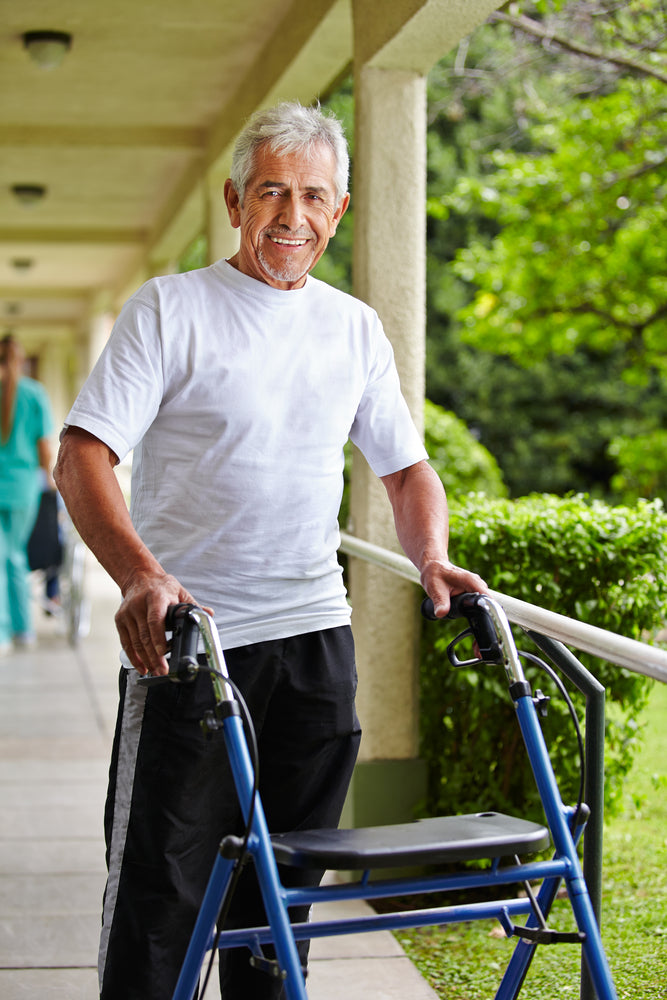Enhancing Post-Surgery Care: The Vital Role of Assistive Technology
Introduction:
Post-surgery recovery is a crucial phase in a patient's journey towards better health. It's a time when individuals need proper support and assistance to ensure a smooth transition back to their daily routines. While medical advancements have significantly improved surgical procedures, the importance of assistive technology in aiding recovery cannot be overstated. Devices such as raised toilet seats, bathtub transfer benches, bed wedges, walkers, and rollators play a pivotal role in enhancing comfort, promoting independence, and reducing the risk of complications during the recovery process.
Raised Toilet Seats:
One of the most fundamental aspects of post-surgery care is maintaining hygiene and mobility, particularly in tasks as basic as using the restroom. Raised toilet seats provide invaluable assistance by increasing the height of the toilet, minimizing strain on the recovering individual's joints, and facilitating easier movement, especially for those with limited mobility.
Bathtub Transfer Benches:

For individuals recovering from surgeries that affect their mobility or balance, getting in and out of the bathtub can be a daunting task. Bathtub transfer benches offer a safe and convenient solution by providing a stable seat that extends across the tub, allowing users to slide in and out with minimal effort. This not only reduces the risk of slips and falls but also promotes confidence and independence during bathing routines.
Bed Wedges:
Proper positioning during rest is essential for post-surgery recovery, especially for patients with respiratory issues, acid reflux, or those needing elevation for limb support. Bed wedges provide adjustable support to help individuals find a comfortable sleeping position while promoting optimal circulation and reducing strain on surgical incisions or affected areas.

Walkers and Rollators:
Regaining mobility is a significant milestone in post-surgery recovery, and assistive devices like walkers and rollators play a crucial role in this process. These devices offer stability, support, and assistance with balance, allowing individuals to gradually increase their activity levels while reducing the risk of falls or injuries. Whether navigating indoors or outdoors, walkers and rollators provide a sense of security and independence, empowering patients to regain their mobility with confidence.

Renting Assistive Technology:
It's important to note that many of these assistive technologies are available for rent, making them accessible to a broader range of individuals regardless of their financial situation or the duration of their recovery. Renting provides a cost-effective solution, allowing patients to use these devices for the duration of their recovery without the burden of ownership. Additionally, renting enables individuals to try different options and find the most suitable equipment for their specific needs, ensuring optimal comfort and support throughout their recovery journey.
Conclusion:
In the realm of post-surgery care, assistive technology plays a pivotal role in enhancing comfort, promoting independence, and facilitating a smoother recovery process. Devices such as raised toilet seats, bathtub transfer benches, bed wedges, walkers, and rollators offer invaluable support and assistance, allowing individuals to navigate daily tasks with greater ease and confidence. Whether purchased or rented, these technologies empower patients to regain their mobility, maintain their hygiene, and ultimately achieve a successful recovery.

